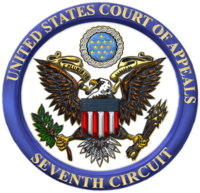
As reported by the National Law Journal, the Seventh Circuit has issued its decision in Andrews v. Chevy Chase Bank, Case No. 07-1326, finding 2-1 that borrowers could not band together in class action suits to rescind their mortgages for Truth-in-Lending Act (TILA) violations. While some district courts have gone the other way, the 1st, 5th and 7th Circuits have now all held that TILA does not provide borrowers a class action avenue for recovery.
This ruling is a boon for many large lenders, most of whom likely eschewed large-scale predatory campaigns. However, it’s also a boon for those less scrupulous lenders who realize that borrowers will have a more difficult time funding predatory practice suits on their own dime.
The Court’s reasoning, that rescission suits are personal and individualized, may be accurate for the most part, but as the dissent argues, this intention is not at all clear from the language of TILA. Given the ambiguous langugage, it seems unnecessary to issue such a sweeping ban when individual judges could preclude the joining of disparate claims via the ordinary class certification process. In this manner, classes of borrowers who exhibit widely varying rescission arguments would be denied class cert, while borrowers citing similar predatory lending practices would not be precluded wholesale from pooling resources to go after an unscrupulous lender. There is certainly no shortage of those, these days.


